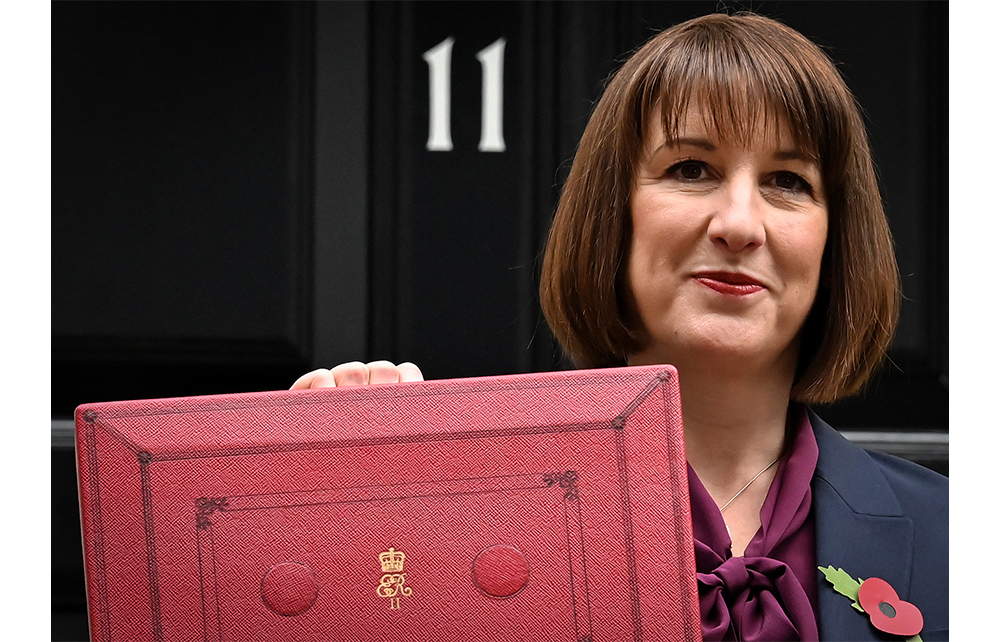Zero-sum game
Sir: Though troubled by the impact of Budget measures on employers and economic growth, I am more baffled by the regressive nature of those measures on the most vulnerable sectors – retail, hospitality, social care and students (‘Tax, spend, borrow’, 2 November). While the employer of a full-time employee earning £50,000 a year will see a cost increase of 2 per cent, the comparable increases for a full-time adult, a half-time adult and a 16-hour-a-week student on the minimum wage are 10.4 per cent, 13.1 per cent and a staggering 23.2 per cent respectively – and retail and hospitality are also hit by a major reduction in business rates relief.
The doubling of the employment allowance for the smallest employers is welcome, but fiscal drag reduces the availability from employers with up to 54 full-time staff on the minimum wage to up to 35, which will rule out even the smallest care homes. Care homes are especially vulnerable since required staffing ratios prevent them from reducing employee numbers. What is the Chancellor trying to achieve with this focus?
James Archer
Dover, Kent
Hitting the buffers
Sir: Charles Moore used the introduction of safe access zones at abortion facilities in England and Wales to decry the lack of protection for British Jews experiencing anti-Semitism (Notes, 2 November). My daughter was part of the campaign for these zones in Scotland, where she encountered testimonies from patients and staff at hospitals and clinics, all of which detailed at least a feeling of unease or prejudice because of protests taking place outside. In the worst cases, patients were harassed, shouted at and traumatised by protestors.
It is unfair of Mr Moore to call into question this country’s commitment to safe abortions as though that and protection for Jews from anti-Semitism are mutually exclusive. The long overdue implementation of buffer zones by the law was used by Mr Moore to imply that, firstly, our government’s priorities in this case are wrong, and secondly, that perhaps we do not need buffer zones. I can assure you that the latter is not true, and that this law will protect patients and staff from harassment and intimidation. I can also confidently say that buffer zones at abortion clinics are not standing in the way of any assistance for Jewish people experiencing discrimination.
Sara Hudson
Holmfirth, West Yorkshire
Albanian adventures
Sir: Ian Thompson’s ‘Letter from Albania’ (26 October) brought back vivid memories of my visit in November 1991. It was just after the fall of the Communist regime and the country was in a state of surreal anarchy. I was driving a canary yellow Land Rover Defender loaned by my company to a small charity. My task was to deliver basic foodstuffs and medicines to the local population and ferry aid workers around. With the Sigurimi secret police still active, there was no shortage of scary incidents. I remember being surrounded by angry men waving Kalashnikovs when we overtook a secret police convoy, and removing a tree at a deserted forest ambush. No harm came to me in either of these events and I have often wondered if I had a guardian angel, or if the ambush was simply closed for lunch.
Nick Brazil
Whitchurch-on-Thames, Oxfordshire
Missing the Mark
Sir: In the recent biography of Jeremy Catto by David Vaiani, reviewed by Richard Davenport-Hines, it is claimed that during a tutorial Catto took a telephone call, turned to his tutee and said: ‘That was Marc Almond. He’s lost in Bucharest’ (Books, 2 November). I think that both Vaiani and Davenport-Hines are under the impression that Catto was acquainted with the popular musician of that name. Much more likely, I suggest, is that the call came from my old friend Mark Almond, an Oriel and Wolfson man, subsequently involved with organisations dealing with human rights. It is explicable – geographically and temporally – why Catto should know Bryan Ferry, but why on earth would he know Marc Almond? I only met Catto once, when the impressive Andrew O’Shaughnessy took me to his rooms one night. I was handed a goblet of gin, and remember nothing else.
Brian Garrett
Australian National University
Canberra, Australia
Language barrier
Sir: I was rather surprised to learn from Toby Young that companies are to be held responsible for harassment by third parties at work (No sacred cows, 19 October). As a junior doctor it’s common for me to overhear patients using outdated or outright offensive language when referring to, for example, a foreign doctor or a male nurse. The elderly are more susceptible to being accidentally offensive, and the ill and distressed more susceptible to being intentionally so. If we could sue the NHS every time this was overheard, our recent pay rise would pale into insignificance.
Dr Bart Soper
London
Making a name
Sir: My late aunt was known as Auntie Tid (Mind your language, 19 October). She was actually Miss Isobel Coulthard (1889-1986) and hailed from northern England with family roots in Cumberland. Her nickname came when as a small child she would always ask for ‘a tiddy bit’ to eat. In Cumberland, where the word tid is found, it is an old Celtic-based way of counting sheep; tid and mid correspond to three and four. As ever with family histories, the origins of nicknames can all but be forgotten, but this aunt’s wasn’t. Might readers ensure to ask family where their nicknames hailed from or be forever lost? As our family’s historian, I have noted down as many as possible.
Angela Walters
Princes Risborough, Buckinghamshire
Write to us letters@spectator.co.uk







Comments